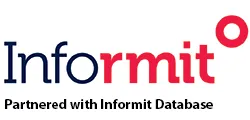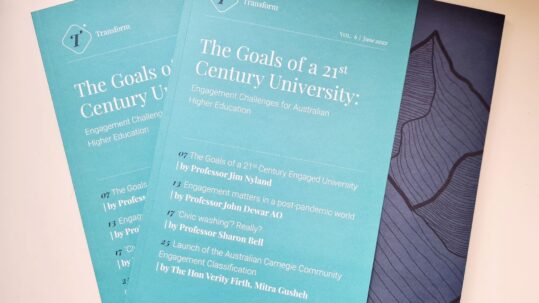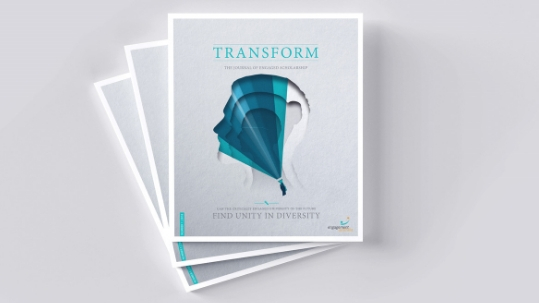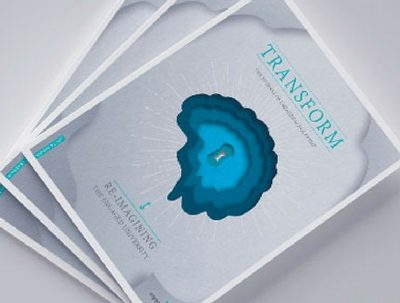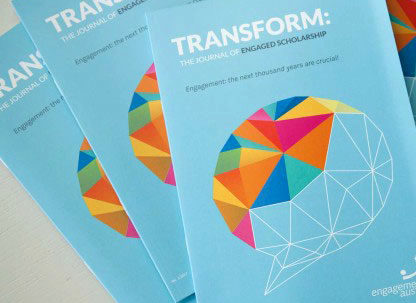
Transform Journal
The Universities Accord: Where to now for Community Engagement?
Earlier this year we saw the long-awaited release of the Universities Accord final report.
With much fanfare, we saw a commitment to massively expand participation in higher education in the coming years, with equity groups, including those from remote and regional areas being critical to the success of this ambition. We have already seen Jason Clare MP attack the low hanging fruit intended to drive participation forward, such as paid placements for nursing and education students and establishing regional and remote study centres. Of greater challenge, yet of critical importance, is the creation of a functional Australian Tertiary Education Commission (ATEC) that will support some of the harder to implement and hopefully enduring changes to the sector as the fiscal, workforce, operational, and philosophical challenges are overcome to meet Australia’s future skills challenges and the social and economic well-being of the nation.
Much ink has been spilled on the Accord final report in totality, so in this editorial I wish to focus on one element specifically: the gulf between the promise for university-community engagement in the interim report, and the rhetoric of the final report. An academic paper’s worth of content on community engagement under “Serving our communities” (Department of Education, 2023, p.18) was featured in the interim report, and even quoted Engagement Australia’s position, “Beyond producing graduates and research, the purpose of the modern Australian university needs to be more explicitly connected to civic outcomes that advance Australian society and this should be intrinsically tied to the engaged teaching, research, and outreach functions of the university.”
We would like to thank the Melbourne Public Humanities Initiative, University of Melbourne for their generous sponsorship of this volume of Transform
About the Journal
Transform: The Journal of Engaged Scholarship is an open-access, peer-reviewed, multi-disciplinary online platform for engaged scholars and practitioners. Engagement Australia welcome submissions from the research, conceptual, theoretical and practice domains across the breadth of the engagement agenda in higher education.
Published annually, the Journal will feature articles that advance the scholarship of engagement within Australia and internationally, providing space for critical inquiry, reflection and review. The Journal includes current and recently completed research, practice-oriented research, and reviews of practice relevant to engagement in the Higher Education sector. Transform is indexed in Informit databases and is listed with the Open Access Australasia directory of open journals.
If you wish to discuss the possibility of a special issue please contact Transform Editor Dr Matthew Pink matthew.pink@acu.edu.au
If you wish to submit a paper for Transform: The Journal of Engaged Scholarship, please view the guidelines below.
-
-
Transform Volume 7- Engagement: The Next Twenty Years are Crucial!
28 November, 2023 -
Transform Issue 5: September 2020 | The New Normal for Higher Learning
29 September, 2020

